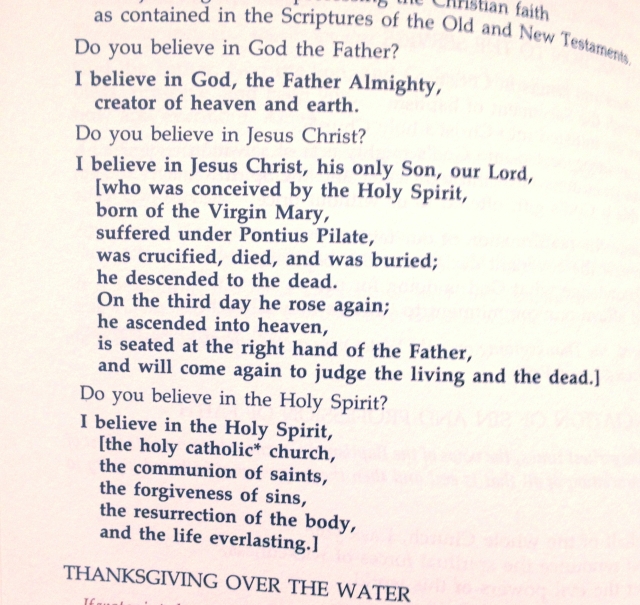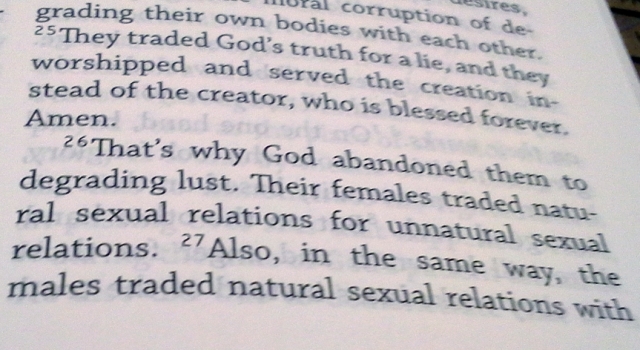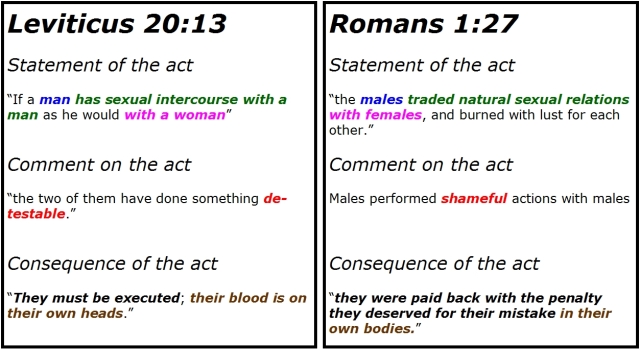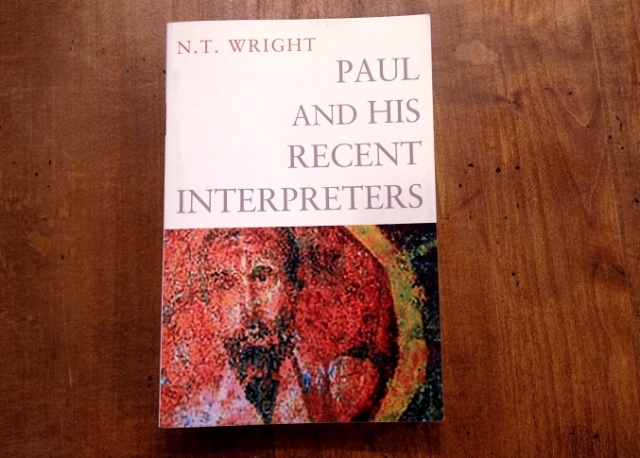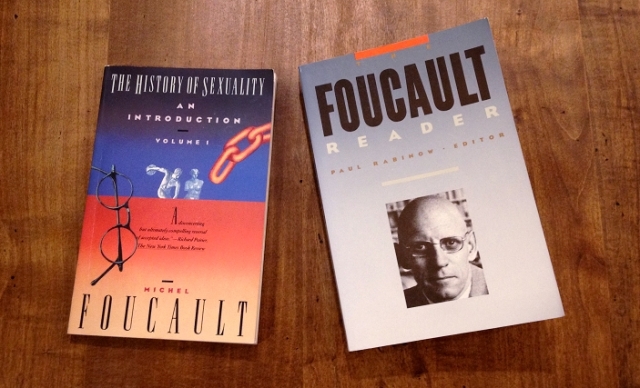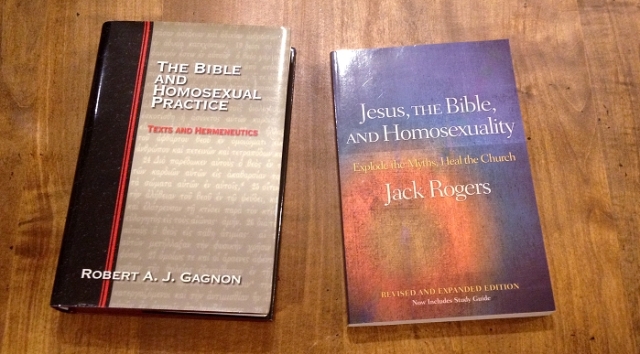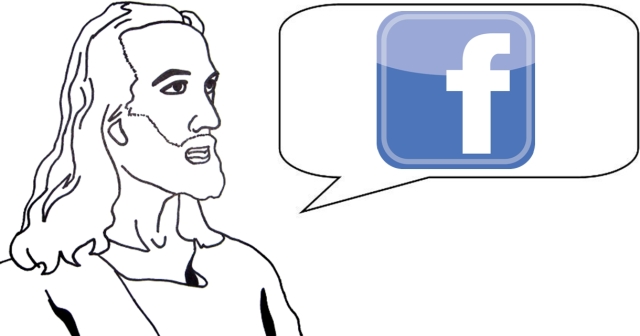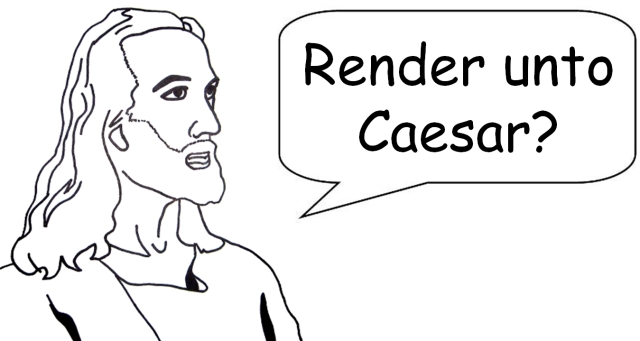Toward a New Epistemology Beyond the Postmodern
By Lee Karl Palo, © 2005 Lee Karl Palo
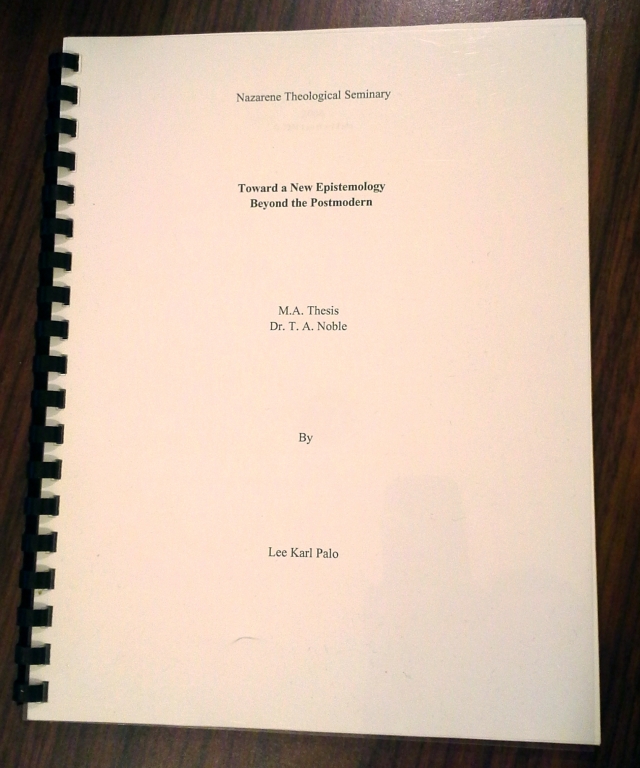
*************************************
[Back to Introduction with the Table of Contents]
[Back to Chapter 2]
*************************************
Chapter 3
Passionate vs. “Objective” Knowledge
The Personal Element
In this chapter it will become very obvious just how different Polanyi’s theory of knowledge is, as we will investigate some other ideas of knowledge. First, however, one last major aspect of Michael Polanyi’s theory must be explicated. Thus far I have dealt with more of the “knowledge” part of Polanyi’s theory of “personal knowledge.” Now it is time for an examination of more of the personal dimension of Polanyi’s theory.
A. The involvement of the body in the production of knowledge
There was a time in the history of philosophy when the material-corporeal was routinely denigrated, or seen to be de-facto evil. For the most part, the particular ideas to be discussed are from Neo-Platonism, specifically the ideas of Plotinus, though other related ideas and themes will be considered. The Good (In Plotinus’ case “The One”) was what was eternal, unchangeable, and far removed from this world. The relationship of this physical world to “The One” is a little complicated. The One, being so far transcendent to this corporeal world cannot be readily described in words (any words used to describe the One would be inadequate to the reality of the One, and if taken too literally could be misleading, so please bear this in mind). Even postulating “existence” to the One is misleading as the word “existence” implies a subsistence to something, thus Plotinus asserts that the One is beyond being as such. In its “natural state” it contemplates only itself, but out of its superabundance the One emanates (generates / creates) nous (often translated as “Spirit” or “mind” or “Intellectual-Principle”).1 Nous, being lesser than the One, in turn emanates the “world-soul.” The world-soul, having a double “nature,” in part contemplates nous, and when it forgets to contemplate nous it emanates the material-corporeal world of our mundane experience. A good way of describing it is to use Polanyi’s concept of the stratification of reality. But in this case, instead of beginning with the level of atoms emerging into higher levels,2 it begins with the eternal realm and emanates the lower levels ending with matter.
This conception of reality in Neo-Platonism, and a contemporary religious movement Gnosticism, understood the human being to be mostly comprised of matter, but there also was a soul that all human beings possessed (the world-soul). The soul was of a higher emanation than matter, and thus closer to the realm of the eternal (the One). When the human being reasoned it involved the soul very heavily, but the soul was entrapped in the material emanation. The material emanation corrupted the reasoning capacity of the soul by virtue of its entrapment of the soul. Thus any participation of the body in knowledge would not seem to be good. One example of the body’s interference with the reasoning of the soul would be “fleshly” desires. As a male it can be difficult to think when a beautiful woman walks by, as is illustrated countless times by popular media (movies and television). For Plotinus the goal of reasoning is a mystical contemplation of the One. Surprisingly, unlike Gnosticism, Plotinus does not see the material world as evil, even though it is the lowest emanation, rather he sees it as the expression of the world-soul. As the world-soul is not evil, its expression (the material world emanation) would also not be evil, just lesser than that from which it came. Philip Merlan notes in the Encyclopedia of Philosophy and Ethics the tensions in Plotinus’ philosophy, one of which is this tension between the material world not being evil and yet its hindering the task of contemplating the One.3 A concise way to phrase this tension in Plotinus’ philosophy would be to say that the material world is aesthetically good, but ethically evil in its hindrance of contemplation. To take the point further Julian Baggini and Peter S. Fosl note that to Nietzsche a Platonic worldview with its emphasis on that which is otherworldly (the theory of forms for example) necessarily denigrates that which is “this-worldly.”4 Bertrand Russell has an amusing way of putting this when he says “He [Plotinus] turned aside from the spectacle of ruin and misery in the actual world, to contemplate an eternal world of goodness and beauty.”5
With the theory of Michael Polanyi, with its heavy emphasis on indwelling and embodied knowledge we get a very different view on whether the participation of the body corrupts knowledge. I would contend that even though we today no longer view the world in the terms of Neo-Platonism or Gnosticism (at least most of us) much of philosophy has never been able to shake this idea that the body corrupts knowledge.6 While many would not state it quite so bluntly that the body corrupts knowledge it is, in many cases, a tacitly held belief. Under the heading “’Reason’ in Philosophy” Nietzsche puts words in the mouths of those who believe that the body corrupts knowledge:
“…there must be some deception which prevents us from perceiving that which has being: where is the deceiver?”
“We have found him,” they cry ecstatically; “it is the senses! These senses, which are so immoral in other ways too, deceive us concerning the true world. Moral: let us free ourselves from the deception of the senses, from becoming, from history, from lies; history is nothing but faith in the senses, faith in lies. Moral: let us say No to all who have faith in the senses, to all the rest of mankind; they are all ‘mob.’ Let us be philosophers! Let us be mummies! …And above all, away with the body, … it is impudent enough to behave as if it were real!”7
In the words of William James: “There is an over-powering desire at moments to escape personality, to revel in actions that have no respect for our ego, to let the tides flow, even though they flow over us.”8 In context, James is referring to those who, upon encountering people who involve their “personal temperament” in the formulation of knowledge, jump to the opposite pole in reaction. Many of us have seen someone who “woke up on the wrong side of the bed” react to others in illogical, irrational, and inappropriate ways.
Today in popular culture this belief that the body corrupts knowledge is often overtly expressed as the need for objectivity. What is objectivity if not the stepping outside of oneself in order to evaluate something? And why would one need to step outside oneself if there is nothing intrinsic to oneself that could corrupt an accurate analysis of something? But, as Polanyi’s theory shows, one cannot escape the body’s involvement in the formulation and use of knowledge. Polanyi is one of very few to truly provide a comprehensive model of knowledge that does not emphasize the participation of the knower in the formulation of knowledge as necessarily a bad thing (Nietzsche and James also saw the human element in knowledge as not necessarily a bad thing.) In Polanyi’s case it is quite often the other way around—the participation of the knower in the formulation of knowledge is a very good thing. William James states, “For a philosophy to succeed on a universal scale it must define the future congruously with our spontaneous powers.”9
Like Kant, Polanyi emphasizes an active participation of the person in the person’s attempt to comprehend the environment. Polanyi would extend this to the animal world as well as to human beings. The major difference between the animal and the human is language. To Polanyi the emergence of language in human beings brings into being new and more complex levels of understanding far above that of the animal kingdom. Thus the animal has a far more limited ability to comprehend its environment. Polanyi has used the example of chimpanzees that, upon the invention of a tool for a practical task, repeat the use of the tool, outside of the tool’s invented purpose, appearing to derive some kind of joy from the invention of the tool.
This has not been the only idea of how the person is able to interact with the environment. To Plato the recognition of something we encounter is more the recognition, by the soul, of the object’s imperfect reflection of the eternal forms. Plato’s understanding has more of the character of remembering, than an active assimilation of the environment by tacit thought forms of the individual.10 The assimilation of the environment by the individual is a skill that we indwell, most often in tacit form, according to the theory of Michael Polanyi. Mistakes understood through Neo-Platonism are quite often the result of the imperfect material world’s emanation from the higher realm of the forms.
Polanyi’s theory presupposes the emergence of some concept of freedom, though, as an emergence, it relies on the levels below it for its proper function. The concept of “freedom” is a very ambiguous concept in many circles. The point in bringing up freedom is to say that skills that are indwelt are still employed by the person through that person’s ability to choose given the options perceived at the level at which the person is operating at (i.e. the person’s freedom). Thus a mistake one could make, according to a Polanyian model, could creep in at many levels. One such mistake could be at the conscious level of a task (where we are most conscious of our freedom). Other mistakes could be in the indwelling of a potentially faulty way of performing a skill, or if the brain no longer performed its usual physiological function. The reason Polanyi’s theory is better than Neo-Platonism is that it makes better sense of our experience.
The body, being a hindrance to truth through its many needs and desires, has been a problem for many to deal with in their philosophies as evidenced by Neo-Platonism. Polanyi’s theory of knowledge begins with lower levels emerging, bringing into being, successively higher levels that transcend the principles governing the levels below it. Human beings have mental faculties that transcend those of the animal kingdom. Language is seen as a chief facilitator of the human transcendence of the animal kingdom. However human beings still have many of the same bodily needs as animals. Given Polanyi’s concept of emergence and the stratification of reality would it be any surprise that human beings have needs that transcend animal needs? Psychologist Abraham H. Maslow has a theory that deals precisely with this issue, it is referred to as the “hierarchy of needs.” Maslow’s theory bears some resemblance to Polanyi’s concept of emergence and the stratification of reality (not surprisingly Polanyi is cited more than once in Maslow’s bibliography in Motivation and Personality where he gives the hierarchy of needs its classical expression.)11 Maslow’s level termed as “the need for self-actualization” is the highest level and is not found in the animal kingdom. One need not rely on Maslow for the idea that there is something intrinsic to humanity that is not present in the animal kingdom that drives us toward its transcendence. Nietzsche’s doctrine of the “will to power,” Tillich’s concept of “ultimate concern,” the Christian concept of sanctification, the religious impetus, the thirst for knowledge, and some kind of grand becoming, all speak of some kind of transcendence. Polanyi’s concept of intellectual passions is likewise transcendent and he identifies the scientific expression of it with “…art, religion, morality, law and other constituents of culture.”12 Polanyi does not feel obligated to explain how the pursuit of scientific truth came about in its transcendent manner; rather it is a given fact. This is why I bring up Abraham Maslow who does have a theory (the aforementioned hierarchy of needs) to explain how the pursuit of scientific truth came about in its transcendent manner (as a function of the need for self-actualization.) Maslow’s theory bears no small amount of resemblance to Polanyi’s theory as has already been stated; in fact it can be seen to be a possible implication of Polanyi’s theory. Given the fact that Polanyi does not draw sharp dichotomies between different ways of pursuing truth it can be said that Polanyi’s conception of scientific method can be readily applicable to other fields, such as theology and in psychology as illustrated by T. F. Torrance13 and A. H. Maslow respectively.
As I mentioned, Polanyi does not feel obligated to explain how the pursuit of scientific truth came about in its transcendent manner. Polanyi does criticize the theory of evolution from his unique theory, and he is not the only one. Nietzsche also criticizes the theory of evolution for many of the same reasons Polanyi does. Walter Kaufmann, a leading authority on Nietzsche, states: “Nietzsche agrees with the Christian tradition and such thinkers as Kant and Hegel that the worth of man must consist in a feature he does not share with any other animal.”14 Through Polanyi’s concept of emergence one can see how humanity could transcend the animal kingdom. Nietzsche was quite pessimistic in that he did not see many people rise above the level of animals, thus his concept of the “will to power.” However evolution, when examined through philosophical-atomism,15 does not provide for a concept of emergence. Evolutionary innovations understood atomistically are due to random mutations at the level of genetics. The trouble, as can be seen, is that life is not lived at the genetic level according to Polanyi’s theory. Our everyday lives do not make sense when interpreted at the genetic level. The purposive aspect to evolutionary innovations cannot be wholly explained at the genetic level with its rules of operation. If one were to move evolutionary theory away from philosophical-atomism and place it into a Polanyian framework it would make a lot more sense. It would then become easier for evolutionary theory to deal with freedom. Instead of mere random gene mutations that happen (accidentally as it were) to be advantageous to the comprehensive entity, one can postulate a more directed change in the comprehensive entity toward an external phenomenon that impinges on said entity’s ability to cope with it.16 Indeed evolutionary theory already can talk about directed change, but a Polanyian framework could make it easier.
B. Objectivity and passion in science
Science has traditionally prided itself on having principles of operation that are not subject to the whims of feeling. In addition, the methods of science have been thought of as guaranteeing results (be it verification or falsification). However to scientists like Michael Polanyi, philosophers of science like Thomas S. Kuhn, and others, science does not work that way. Polanyi states:
Science is regarded as objectively established in spite of its passionate origins. It should be clear by now that I dissent from that belief… I want to show that scientific passions are no mere psychological by-product, but have a logical function which contributes an indispensable element to science.17
A dominant belief among scientists is that science is supposed to be impartial. From this claim there is no reason why one line of experimentation ought to be pursued over another. But there are so many possibilities for experimentation how could one possibly choose what to explore first? Or ought the scientist to practice meditation of the Buddhist type and be open to the continuous flux of experience without choosing one moment of space and time to direct one’s focal awareness? Sir Francis Bacon, a pioneer of the scientific method, would perform all sorts of experiments just to see what the result would be.18 In his final experiment he was stuffing chickens with snow to see what would happen, but unfortunately what did happen was he became ill and died.19 Today scientists emphasize the need for a hypothesis, and research that is a bit more directed. With regard to the scientific method, Nietzsche states in the Gay Science:
In science convictions have no rights of citizenship, as is said with good reason. Only when they decide to descend to the modesty of a hypothesis, of a provisional experimental point of view, of a regulative fiction, may they be granted admission and even a certain value within the realm of knowledge—though always with the restriction that they remain under police supervision, under the police of mistrust. But does this not mean, more precisely considered, that a conviction may obtain admission to science only when it ceases to be a conviction? …one must still ask whether it is not the case that, in order that this discipline could begin, a conviction must have been there already… But one will gather what I am driving at, namely, that it always remains a metaphysical faith upon which our faith in science rests…20
Michael Polanyi puts it thus in Personal Knowledge:
Science is a system of beliefs to which we are committed. Such a system cannot be accounted for either from experience. Yet this does not signify that we are free to take it or leave it, but simply reflects the fact that it is a system of beliefs to which we are committed and which therefore cannot be represented in non-committal terms.21
From the previous two quotes it would seem that prior to the choice of what kind of experiment to perform there is a choice-commitment to science.22 To Michael Polanyi the art of practicing science is a skill indwelt like any other. Thus in the performance of scientific pursuits there are definitely tacit components. In this case to perform scientific pursuits is an act of shifting one’s awareness to the task of science. At first one shifts one’s focal awareness to the pursuit of science in order to learn the skill. As time goes on one no longer has to preoccupy one’s focal awareness with the shift to scientific pursuits, rather scientific pursuits are now indwelt. The initial choice-commitment to science is now contained in one’s subsidiary awareness and can be said to be a tacit commitment to science. From this point the scientist can, and indeed must, choose by the use of the scientists’s focal awareness a line of scientific investigation.
Why is it that some scientists pursue physics over chemistry or biology? As has been shown, objectivity and impartiality at this level incapacitate the scientist from making any kind of commitment. There are no external criteria with which to determine one line of investigation over another out of infinite possibilities for investigation. William James says, “We cannot live or think at all without some degree of faith. Faith is synonymous with working hypothesis.”23 To apply Polanyian terminology to the Jamesian concept of faith: faith is the indwelling of a commitment. In the task at hand, the scientist (having already indwelt a commitment to science) through the indwelling of the skill of scientific investigation chooses an area to investigate and pursues it.
As scientific skills are indwelt in the same manner as many other aspects of life one is not guaranteed to be free from passion and desire in the application of the indwelt skill of science. William James discusses W. K. Clifford’s idea that for the scientist, as well as for anyone else “…It is wrong always, everywhere, and for every one, to believe anything upon insufficient evidence.”24 In response to Clifford’s maxim William James replies:
I myself find it impossible to go with Clifford. We must remember that these feelings of our duty about either truth or error are in any case only expressions of our passional life. Biologically considered, our minds are as ready to grind out falsehood as veracity, and he who says, “Better go without belief forever than believe a lie!” merely shows his own preponderant private horror of becoming a dupe. … For my own part, I have also a horror of being duped; but I can believe that worse things than being duped may happen to a man in this world: so Clifford’s exhortation has to my ears a thoroughly fantastic sound.25
Based on what James has said, it is clear that in the realm of science when the scientist seems to be least passionately involved and most objective and impartial, it can be said to be a screen masking faith commitments that are quite passional. Not all scientists hold to some ideal of objectivity out of fear, as Clifford would seem to, though perhaps that is the root cause of holding to the ideal of objectivity. Rather, to use Polanyi’s idea of how one learns a skill, the ideal of objectivity is an unconscious tacit commitment passed from the teacher to the student quite possibly without any overt knowledge of why objectivity is a good thing.
It is important to note that for Polanyi, James, and Nietzsche passion is not always a negative thing. The origin of the word “passion” is not unrelated to the idea of suffering, and Friedrich Nietzsche is well known for his emphasis on potential benefits of suffering.26 For James and Polanyi the passion of the seeker of truth propels the seeker toward the goal.27 The Scientist’s infatuation with the pursuit of science and admiration for the beauty of nature are positive aspects of passion. James says, “What we enjoy most in a Huxley or a Clifford is not the professor with his learning, but the human personality ready to go in for what it feels to be right, in spite of appearances.”28
While passion is an unavoidable and necessary component of scientific investigation, all three men are more than willing to admit than it can go too far and hinder the gaining of truth. Nietzsche is an avid, one might even say rabid, proponent of questioning one’s own hypotheses. William James advocates a little skepticism to offset commitments that are passionately held in order to aid objectivity. All three men (Polanyi, James, and Nietzsche) do see value in objectivity for the purpose of avoiding fatal leaps/lapses into error. But none of them would say that complete objectivity is possible, much less desired. Objectivity for them has more to do with being able to “step back” from oneself and critique oneself. Without the commitment to a hypothesis it would be impossible for the scientist to see it validated, but without the ability to “step back” the scientist might never see potential problems with his or her hypothesis. This function (of an objective viewpoint) can be, and often is, performed by the scientific community at large. Basically the pursuit of science from within a Polanyian framework contains more facets of the personal than can be exhaustively articulated.29
“We know more than we can tell.”
C. Polanyi vs. the “Laplacian Mind”
We have seen how Neo-Platonism and another contemporary religious movement (Gnosticism), have viewed the body as a hindrance to the pursuit of truth. Objectivity has been and continues to be of very high value in the pursuit of truth, especially in science. Obviously total objectivity is not possible, but the ideal of total objectivity to this day still exerts a powerful influence in science.
A good question to ask that really has not been asked enough is what the purpose/end/eschatological fulfillment of science is? What does the pursuit of scientific truth aim toward? Polanyi identifies the philosophy of science of Laplace as the one which best gives expression to the goal of what most people have understood to be that of science. Philosophical atomism or materialistic reductionism (whatever you want to call it) is predicated on the idea that if you pursue the way things are constructed back to their most constituent parts (the “atoms” in atomism) you will understand everything. One could thus predict everything that occurs in the entire universe. This is the goal and what Polanyi refers to as the “Laplacian mind.” It is important to note that Polanyi would not necessarily say that the ideal of the “Laplacian mind” began with Laplace in the nineteenth century. Prior to Laplace it was more of a vague, tacit goal of philosophy and science. For that matter asking the question, “What is the purpose of science?” is not a scientific question. That unscientific question, however, would seem to exert a powerful influence on science.
The next chapter will deal with the ancient Hebraic concept of knowledge (yadah). We will see how this Biblical concept of knowing is indeed consonant with Polanyi’s concept of knowing. We will also examine how these concepts relate to how some see knowledge today. The next chapter will thus continue the critique of some philosophical and scientific concepts of knowing such as Neo-Platonism begun in this chapter.
*************************************
1 See Bertrand Russell’s explanation of the difficulty of translating nous on pages 288 & 289 of his History of Western Philosophy. Following Bertrand Russell I too will leave it untranslated.
Russell, Bertrand. A History of Western Philosophy. New York: Simon & Schuster, 1945.
2 For want of a better beginning point I choose “atoms” while recognizing that there are subatomic particles. The idea of the atom can be traced back to Greek philosophy, where it meant “not divisible,” so given the context of my thesis it seems the most appropriate choice.
3 See the article on Plotinus on pages 834-844 in Philosophy and Ethics: Selections from The Encyclopedia of Philosophy and Supplement.
Borchert, Donald ed. Philosophy and Ethics: Selections from The Encyclopedia of Philosophy and Supplement. (New York: Macmillan Library Reference USA, 1999).
4 Julian Baggini and Peter S. Fosl, The Philosopher’s Toolkit. (Malden: Blackwell Publishing, 2003), 189-190
5 Bertrand Russell, A History of Western Philosophy. (New York: Simon & Schuster, 1945), 284
6 The main reason I chose Neo-Platonism as an antagonist is that Plato has had an incalculable influence on the history of philosophy (illustrated by A. N. Whitehead’s famous quote in which all philosophy since Plato is merely a footnote to Plato), and the further exploration of Plato’s themes in Neo-Platonism provides the most blunt expression of what I am attacking in the history of philosophy.
7 Friedrich Nietzsche, The Portable Nietzsche. ed. & trans. Walter Kaufmann. (New York: Penguin, 1954), 480.
8 William James, Essays in Pragmatism. (New York: Hafner Publishing, 1948), 22.
9 William James, Essays in Pragmatism. (New York: Hafner Publishing, 1948), 16.
10 Plato’s doctrine of recollection is first expounded in the Meno and reappears in the Phaedo alongside the Theory of Forms, and is touched on in the Phaedrus.
11 Abraham H. Maslow, Motivation and Personality, Second Edition. (New York: Harper and Row, 1970), 347
Maslow first refers to Polanyi on page xi, which is the third page of text in the book (in the preface)!
12 Michael Polanyi, Personal Knowledge: Towards a Post-Critical Philosophy. (Chicago: The University of Chicago Press, 1958), 133.
13 Torrance went so far as to edit a book with the subtitle “The Relevance of Michael Polanyi’s Thought for Christian Faith and Life”
Torrance, T. F. ed. Belief in Science and in Christian Life: The Relevance of Michael Polanyi’s Thought for Christian Faith and Life. Eugene: Wipf & Stock Publishers, 1998.
14 Walter Kaufmann, Nietzsche: Philosopher, Psychologist, Antichrist, 4th edition. (Princeton: Princeton University Press, 1974), 151.
15 Philosophical-atomism is the reductive analysis of a given topic to its most constitutive elements.
16 Presumably the evolutionary innovations would be directed by the entity (or its class as a whole) in response to its environment. One could also cite perhaps God’s intervention, though this would be outside the purview of science.
17 Michael Polanyi, Personal Knowledge: Towards a Post-Critical Philosophy. (Chicago: The University of Chicago Press, 1958), 134.
18 See: Bertrand Russell, A History of Western Philosophy. (New York: Simon & Schuster, 1945), 544.
Russell states, “Bacon’s inductive method is faulty through insufficient emphasis on hypothesis.”
19 This is one of the fun facts to be found in the book Philosophy for Beginners.
Richard Osborne, Philosophy for Beginners. (New York: Writers and Readers Publishing, 1992), 68.
20 Friedrich Nietzsche, The Portable Nietzsche. ed. & trans. Walter Kaufmann. (New York: Penguin, 1954), 448-450.
21 Michael Polanyi, Personal Knowledge: Towards a Post-Critical Philosophy. (Chicago: The University of Chicago Press, 1958), 171.
22 James also emphasized this: See James’ essay “The Sentiment of Rationality” in Essays in Pragmatism.
William James, Essays in Pragmatism. (New York: Hafner Publishing, 1948), 3-36.
23 William James, Essays in Pragmatism. (New York: Hafner Publishing, 1948), 25.
24 W. K. Clifford as quoted by William James in his famous essay “The Will to Believe”
William James, Essays in Pragmatism. (New York: Hafner Publishing, 1948), 93.
25 From James’ famous essay “The Will To Believe”
William James, Essays in Pragmatism. (New York: Hafner Publishing, 1948), 100.
26 Nietzsche himself suffered more than a few ailments in his lifetime. See Walter Kaufmann’s Nietzsche: Philosopher, Psychologist, Antichrist.
Kaufmann, Walter. Nietzsche: Philosopher, Psychologist, Antichrist, 4th edition. Princeton: Princeton University Press, 1974.
27 With these two thinkers the importance of passion for the pursuit of truth cannot be overstated.
28 William James, Essays in Pragmatism. (New York: Hafner Publishing, 1948), 24.
29 The Scientist’s commitment, a desire for objectivity, the scientist’s enjoyment of science, the scientist’s emotional state while doing science, are but a few examples. Exhaustively cataloging all the potential personal factors affecting science is not practically helpful, much less possible, but general factors such as those already mentioned are helpful.
*************************************
[To Chapter 4]
*************************************
